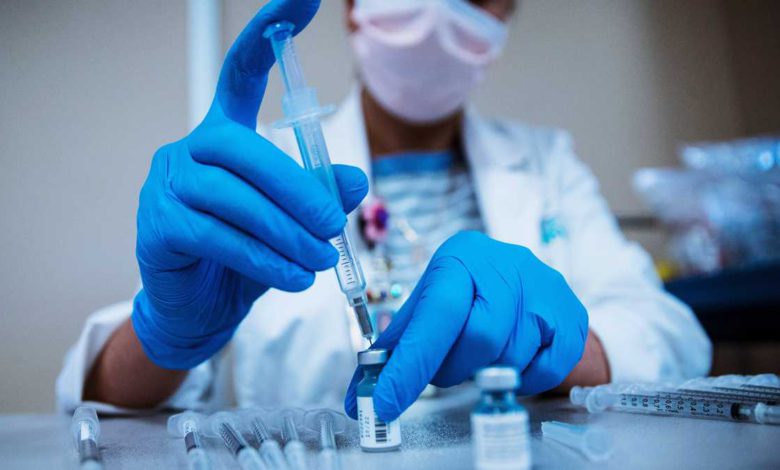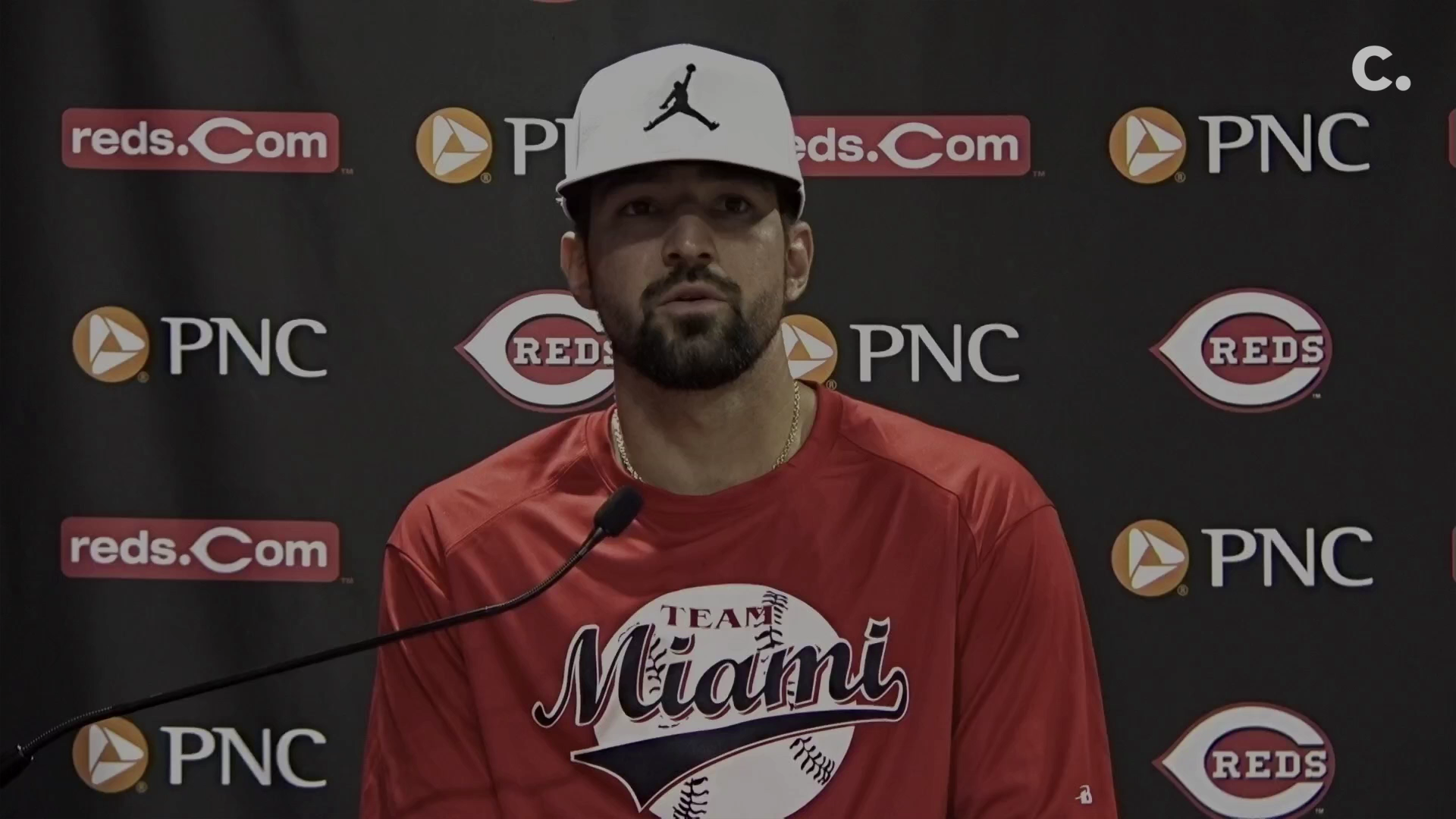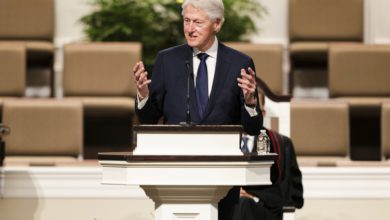

As the first full FDA approval is granted to a COVID-19 vaccine, Dr. Anthony Fauci urged the public to take part, saying if the "overwhelming majority" of the population gets vaccinated, the U.S. could have the pandemic under control by spring of 2022."We hope we'll be there ... but there's no guarantee because it's up to us," Fauci, director of the National Institute of Allergy and Infectious Diseases and the president's chief medical adviser, told CNN Monday.It isn't yet clear to health experts exactly what proportion of the population needs to be vaccinated to reach a level of protection that could sustain a return to normalcy, like safely attending restaurants and theaters, Fauci said. So, the best way forward is to vaccinate as many people as possible, he said.On Monday the U.S. Food and Drug Administration granted full approval to the Pfizer/BioNTech COVID-19 vaccine for people 16 and older.With only 51.5% of the population fully vaccinated, according to data from the U.S. Centers for Disease Control and Prevention, Fauci said the move could help alleviate concerns and convince a significant portion of Americans to get vaccinated.The hope is heightened by the worsening impacts of the pandemic. Hospitals in many states with lower vaccination rates are overwhelmed by a surge in patients, students are returning to the classroom only to have to isolate due to exposure and cases among children are on the rise.But some experts are skeptical that vaccination rates will go up just because of the approval."I do think there will be a modest increase, but, look, we have a long way to go to fill this gap," vaccinologist and dean of the National School of Tropical Medicine at Baylor College of Medicine, Dr. Peter Hotez said. "I think having the full approval will certainly convince some, but it's just one of a dozen fake talking points put out there by the disinformation campaign. And, I think a number of people are just going to revert to one of the other ones."Several false claims about COVID-19 vaccines have posed a challenge to vaccinating greater numbers of Americans, Dr. Peter Marks, director of the FDA's Center for Biologics Evaluation and Research, said Monday. Some of those include false claims about infertility, microchips and fatalities."Let me be clear: These claims are simply not true. Getting a COVID-19 vaccine can save your life," Marks said.The thing that may really motivate people to get those life-saving vaccines, Hotez said, is if the authorization paves the way for employers, businesses and schools to mandate vaccinations.Governors and schools mandating vaccinesAlready, some government bodies and schools are calling for mandatory vaccinations.Then-New York Gov. Andrew Cuomo released a statement Monday, before he left office, calling for all New York state employers to require COVID-19 vaccination after the FDA approved the Pfizer vaccine."This morning's announcement that the federal Food and Drug Administration has fully approved Pfizer's COVID-19 vaccination eliminates any doubt in the science and efficacy of COVID vaccines," Cuomo said.The state already requires all eligible government and healthcare employees to be vaccinated.New Jersey Gov. Phil Murphy also announced a vaccine mandate Monday. All state employees, which includes pre-k through 12 schools and public universities, are required to be fully vaccinated by Oct. 18 or be subject to regular testing, Murphy said.Many colleges and universities across the country have announced requirements for students in the new school year to be vaccinated, and on Monday the University of Minnesota joined the list, university President Joan Gable and Jakub Tolar, Dean of the Medical School announced in a letter to students, faculty and staff.Faculty and staff will be "expected" to attest to their vaccination status starting Tuesday, the letter said.Fighting the delta variantOne factor that has raised concerns over COVID-19 spread is the more transmissible delta variant.Pfizer is making a vaccine specifically targeting the delta variant, but Pfizer CEO Albert Bourla said Monday he doesn't think it will be needed because the current vaccine is so effective."We are making right now a specialized vaccine for delta," Bourla told NBC. "I'm almost certain that we will not need it."Officials have begun preparing for the administration of boosters to protect against the variant in the fall and winter. But health experts say the measure is a precaution — and not a sign that the vaccines already in use are ineffective."There are various real-world evidence that are emerging here that suggest that the vaccine is still effective against the delta variant," Marks said. "Data coming out of Israel seems to suggest that with time, immunity from the vaccine does tend to wane, and so that's something we'll be following closely."PGRpdiBjbGFzcz0iaW5mb2dyYW0tZW1iZWQiIGRhdGEtaWQ9ImJhMjIxYWIxLTEwMDQtNGI1Zi05NDAwLThlMzUzOGIzYmRhZCIgZGF0YS10eXBlPSJpbnRlcmFjdGl2ZSIgZGF0YS10aXRsZT0iVW5pdGVkIFN0YXRlcyBDT1ZJRCBWYWNjaW5lIEluZm9ncmFtIj48L2Rpdj48c2NyaXB0PiFmdW5jdGlvbihlLGksbixzKXt2YXIgdD0iSW5mb2dyYW1FbWJlZHMiLGQ9ZS5nZXRFbGVtZW50c0J5VGFnTmFtZSgic2NyaXB0IilbMF07aWYod2luZG93W3RdJiZ3aW5kb3dbdF0uaW5pdGlhbGl6ZWQpd2luZG93W3RdLnByb2Nlc3MmJndpbmRvd1t0XS5wcm9jZXNzKCk7ZWxzZSBpZighZS5nZXRFbGVtZW50QnlJZChuKSl7dmFyIG89ZS5jcmVhdGVFbGVtZW50KCJzY3JpcHQiKTtvLmFzeW5jPTEsby5pZD1uLG8uc3JjPSJodHRwczovL2UuaW5mb2dyYW0uY29tL2pzL2Rpc3QvZW1iZWQtbG9hZGVyLW1pbi5qcyIsZC5wYXJlbnROb2RlLmluc2VydEJlZm9yZShvLGQpfX0oZG9jdW1lbnQsMCwiaW5mb2dyYW0tYXN5bmMiKTs8L3NjcmlwdD4KChildren still on holdAs health experts celebrate the first full approval of a COVID-19 vaccine, many are still left with questions about how children will be protected.The approval only extends to adolescents 16 and older, meaning those ages 12 to 15 are still being vaccinated under emergency use authorizations. And many parents have awaited vaccine protection for children even younger.The FDA emphasized Monday that the approval does not mean the vaccine can be used "off-label" in children younger than 12, saying it "it would not be appropriate."Off-label refers to an approved product being used in a way or in a patient that it wasn't necessarily approved for.Vaccines for that age group are still in progress, and enough data for them could be available by mid-fall for Pfizer and a bit later for Moderna, Fauci said.The FDA will then look at the data and make a risk benefit analysis, Fauci said."That could be a couple of extra months, so we don't know whether or not we're going to get the regulatory decision by the late fall, early winter or it might even go into the following year," Fauci said.Fauci said the decision to authorize the vaccine for this age group is "fundamentally based on safety.""I don't think there's going to be any question that this is going to be effective in the children at that younger age. I have no doubt about that," Fauci said. "It's going to be a safety issue."
As the first full FDA approval is granted to a COVID-19 vaccine, Dr. Anthony Fauci urged the public to take part, saying if the "overwhelming majority" of the population gets vaccinated, the U.S. could have the pandemic under control by spring of 2022.
"We hope we'll be there ... but there's no guarantee because it's up to us," Fauci, director of the National Institute of Allergy and Infectious Diseases and the president's chief medical adviser, told CNN Monday.
It isn't yet clear to health experts exactly what proportion of the population needs to be vaccinated to reach a level of protection that could sustain a return to normalcy, like safely attending restaurants and theaters, Fauci said. So, the best way forward is to vaccinate as many people as possible, he said.
On Monday the U.S. Food and Drug Administration granted full approval to the Pfizer/BioNTech COVID-19 vaccine for people 16 and older.
With only 51.5% of the population fully vaccinated, according to data from the U.S. Centers for Disease Control and Prevention, Fauci said the move could help alleviate concerns and convince a significant portion of Americans to get vaccinated.
The hope is heightened by the worsening impacts of the pandemic. Hospitals in many states with lower vaccination rates are overwhelmed by a surge in patients, students are returning to the classroom only to have to isolate due to exposure and cases among children are on the rise.
But some experts are skeptical that vaccination rates will go up just because of the approval.
"I do think there will be a modest increase, but, look, we have a long way to go to fill this gap," vaccinologist and dean of the National School of Tropical Medicine at Baylor College of Medicine, Dr. Peter Hotez said. "I think having the full approval will certainly convince some, but it's just one of a dozen fake talking points put out there by the disinformation campaign. And, I think a number of people are just going to revert to one of the other ones."
Several false claims about COVID-19 vaccines have posed a challenge to vaccinating greater numbers of Americans, Dr. Peter Marks, director of the FDA's Center for Biologics Evaluation and Research, said Monday. Some of those include false claims about infertility, microchips and fatalities.
"Let me be clear: These claims are simply not true. Getting a COVID-19 vaccine can save your life," Marks said.
The thing that may really motivate people to get those life-saving vaccines, Hotez said, is if the authorization paves the way for employers, businesses and schools to mandate vaccinations.
Governors and schools mandating vaccines
Already, some government bodies and schools are calling for mandatory vaccinations.
Then-New York Gov. Andrew Cuomo released a statement Monday, before he left office, calling for all New York state employers to require COVID-19 vaccination after the FDA approved the Pfizer vaccine.
"This morning's announcement that the federal Food and Drug Administration has fully approved Pfizer's COVID-19 vaccination eliminates any doubt in the science and efficacy of COVID vaccines," Cuomo said.
The state already requires all eligible government and healthcare employees to be vaccinated.
New Jersey Gov. Phil Murphy also announced a vaccine mandate Monday. All state employees, which includes pre-k through 12 schools and public universities, are required to be fully vaccinated by Oct. 18 or be subject to regular testing, Murphy said.
Many colleges and universities across the country have announced requirements for students in the new school year to be vaccinated, and on Monday the University of Minnesota joined the list, university President Joan Gable and Jakub Tolar, Dean of the Medical School announced in a letter to students, faculty and staff.
Faculty and staff will be "expected" to attest to their vaccination status starting Tuesday, the letter said.
Fighting the delta variant
One factor that has raised concerns over COVID-19 spread is the more transmissible delta variant.
Pfizer is making a vaccine specifically targeting the delta variant, but Pfizer CEO Albert Bourla said Monday he doesn't think it will be needed because the current vaccine is so effective.
"We are making right now a specialized vaccine for delta," Bourla told NBC. "I'm almost certain that we will not need it."
Officials have begun preparing for the administration of boosters to protect against the variant in the fall and winter. But health experts say the measure is a precaution — and not a sign that the vaccines already in use are ineffective.
"There are various real-world evidence that are emerging here that suggest that the vaccine is still effective against the delta variant," Marks said. "Data coming out of Israel seems to suggest that with time, immunity from the vaccine does tend to wane, and so that's something we'll be following closely."
Children still on hold
As health experts celebrate the first full approval of a COVID-19 vaccine, many are still left with questions about how children will be protected.
The approval only extends to adolescents 16 and older, meaning those ages 12 to 15 are still being vaccinated under emergency use authorizations. And many parents have awaited vaccine protection for children even younger.
The FDA emphasized Monday that the approval does not mean the vaccine can be used "off-label" in children younger than 12, saying it "it would not be appropriate."
Off-label refers to an approved product being used in a way or in a patient that it wasn't necessarily approved for.
Vaccines for that age group are still in progress, and enough data for them could be available by mid-fall for Pfizer and a bit later for Moderna, Fauci said.
The FDA will then look at the data and make a risk benefit analysis, Fauci said.
"That could be a couple of extra months, so we don't know whether or not we're going to get the regulatory decision by the late fall, early winter or it might even go into the following year," Fauci said.
Fauci said the decision to authorize the vaccine for this age group is "fundamentally based on safety."
"I don't think there's going to be any question that this is going to be effective in the children at that younger age. I have no doubt about that," Fauci said. "It's going to be a safety issue."
Source link









